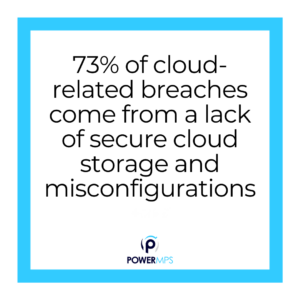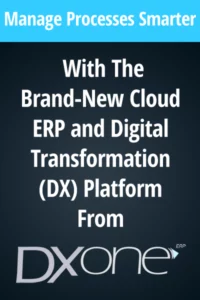In today’s digitized world, businesses increasingly rely on the cloud for data storage. Statista reports that more than 50% of global enterprises were utilizing cloud services by the end of last year. However, this digital reliance also exposes businesses to potential cyber threats.
Cybersecurity breaches can be disastrous for businesses. The US National Cyber Security Alliance states that 60% of small and medium-sized enterprises that suffer a cybersecurity attack fail within six months. Thus, the protection of your business data becomes a crucial concern.
Transitioning to the Cloud
As we delve deeper into the digital era, cloud computing rapidly becomes the cornerstone of business operations. The unprecedented efficiency, scalability, and speed that cloud computing brings to the table are undeniable. Astonishingly, data from Flexera suggests that 94% of enterprises have experienced the advantages of cloud-based services.
However, making the shift to the cloud is not without its own set of challenges. Among these, the most prominent is the heightened need for effective cybersecurity. It’s a common mistake to treat traditional network security and cloud security in the same way. This misconception often leaves businesses exposed to severe digital threats.
Essentially, precautions and measures for cloud security differ significantly from those put in place for network security. Slight errors in understanding these variances can lead to irrevocable vulnerabilities in a company’s cybersecurity infrastructure. It’s imperative that businesses ascertain and adapt to these differences, ensuring maximum data protection.
Cybersecurity Measures in the Cloud
 To effectively secure your business data, developing an agile security posture must be a top priority. Most cloud-related breaches, 73% to be precise, according to a report by Cloud Security Alliance, come from a lack of secure cloud storage and misconfigurations. Optimizing the configuration and management of access to your cloud resources is of pivotal importance.
To effectively secure your business data, developing an agile security posture must be a top priority. Most cloud-related breaches, 73% to be precise, according to a report by Cloud Security Alliance, come from a lack of secure cloud storage and misconfigurations. Optimizing the configuration and management of access to your cloud resources is of pivotal importance.
In the realm of cybersecurity, it’s also crucial to establish and enforce in-depth, hands-on security practices. Such practices should include comprehensive audits, exhaustive penetration testing, and intensive training for all employees. Adding to the urgency, an alarming statistic from an IBM report states that 70% of cybersecurity breaches are attributable to insiders.
So, instilling a strongly rooted cybersecurity culture across the entirety of your organization is essential. This includes more than just setting up technological safeguards. Employees at all levels and in all departments should have a clear understanding of cybersecurity protocols and take an active role in implementing them.
Data Encryption and Backups
Undeniably, data encryption plays a vital role when it comes to securing sensitive business information in the cloud. Almost all cloud service providers offer encryption capabilities, but adding an extra layer of encryption can elevate the security of your data to a much higher standard.
On another front, data backups tend to be a commonly overlooked aspect of cybersecurity. Given their crucial role in ensuring business continuity in the face of unexpected cyber threats, they should be given more emphasis. Think of backups as a safety net for your data that can be activated when the worst happens.
Lastly, it’s worth noting a significant statistic from the Cybersecurity & Infrastructure Security Agency. They claim that 75% of ransomware attack victims who had regular data backups in place were able to minimize their losses significantly. In essence, maintaining regular data backups can be a relatively simple yet high-reward practice for protecting your business data.
Reliable Cloud Service Provider
The choice of your cloud service provider plays a significant role in securing your business data. When selecting a vendor, assessing their security regulations, their historical performance, and the control they provide over your data is crucial. Trusted service providers, like Amazon Web Services or Microsoft Azure, are known for strict adherence to privacy laws and offering robust protective measures.
Moreover, analyzing a provider’s breach notification policy deserves your careful consideration. How quick would they be to notify you in case of a cybersecurity breach? Quick detection and appropriate response can substantially reduce the damage a cyberattack can inflict.
To wrap up this section, it’s essential to understand that your cloud service provider is not just a vendor, but a partner. Such a partnership demands trust and transparency. Therefore, choosing a reliable cloud service provider is not just about comparing features and pricing. It’s about ensuring the best protection for your business data in a collaborative and mutual manner.
Final Thoughts on Cybersecurity
As we summarize our discussion on cybersecurity, it’s clear that shifting to the cloud is laden with both advantages and challenges. Cybersecurity undoubtedly stands at the forefront of these challenges. Therefore, vigilance to the evolving threat landscape and understanding the unique security needs of cloud services are critical.
In the selection of your cloud service provider, look for a reliable partner that aligns with your business’s cybersecurity needs. This goes a long way in enhancing the security of your business data.
Finally, let’s remember one crucial fact: In our digital era, data is king. Its protection should consequently be a top-tier priority for every business. Every effort invested in strengthening cybersecurity should be seen as safeguarding the lifeblood of your business.







